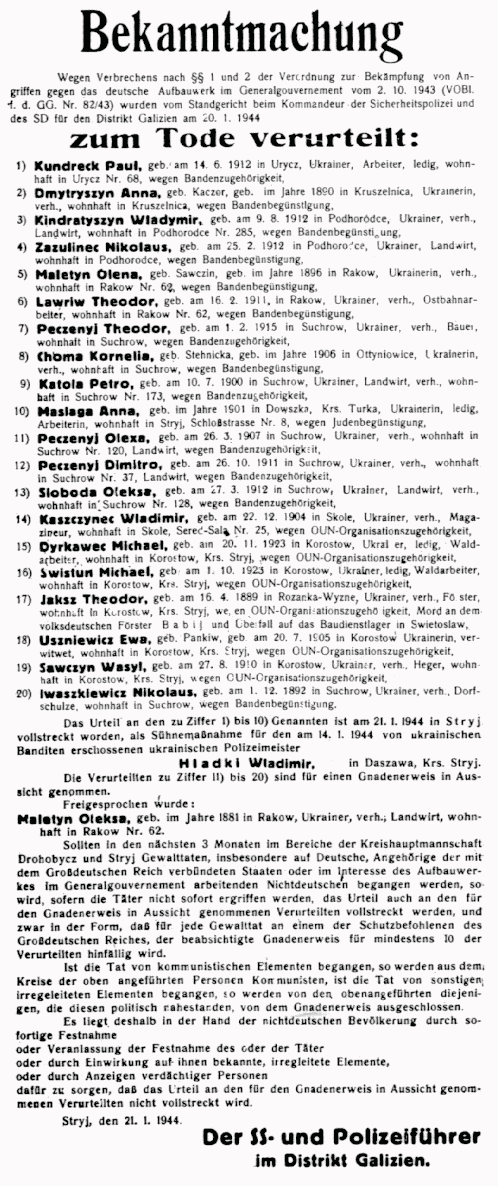In 1943 Shukhevych became commaner-in-chief of the Ukrainian Insurgent Army (UPA) (Ukrainska povstanska armiia), remaining at this post until March 1950, when he and his men were surrounded and killed by the Soviet secret police.
The UPA was initiated by an independent activist in Volhynia, Taras Borovets, who established a Polissian Sich, which attacked retreating Soviet forces in 1941. Conceiving of this Sich as the nucleus of a national army, Borovets allied himself with the OUN-M and, in the spring of 1942, undertook anti-German resistance. By that autumn, however, the OUN-B had begun its own resistance to the Germans and in 1943 managed to seize control of the UPA, which had grown to a peak strength of about 40,000.
Since the UPA was now fighting the Germans, who made a determined but unsuccessful attempt to destroy it, the nationalist underground was obliged to shed any ideological affinities with totalitarianism. In 1943, both the UPA and the OUN-B adopted official programmatic statements condemning Nazi and Soviet imperialism and affirming the nationalist movement's commitment to political pluralism and to the traditional democratic freedoms associated with Western liberalism.
Myroslav Yurkevich, Galician Ukrainians in German military formations and in the German administration, in Yury Boshyk (editor), Ukraine During World War II: History and its Aftermath, Canadian Institute of Ukrainian Studies, Edmonton, 1986, pp. 67-87, pp. 72-73 |
